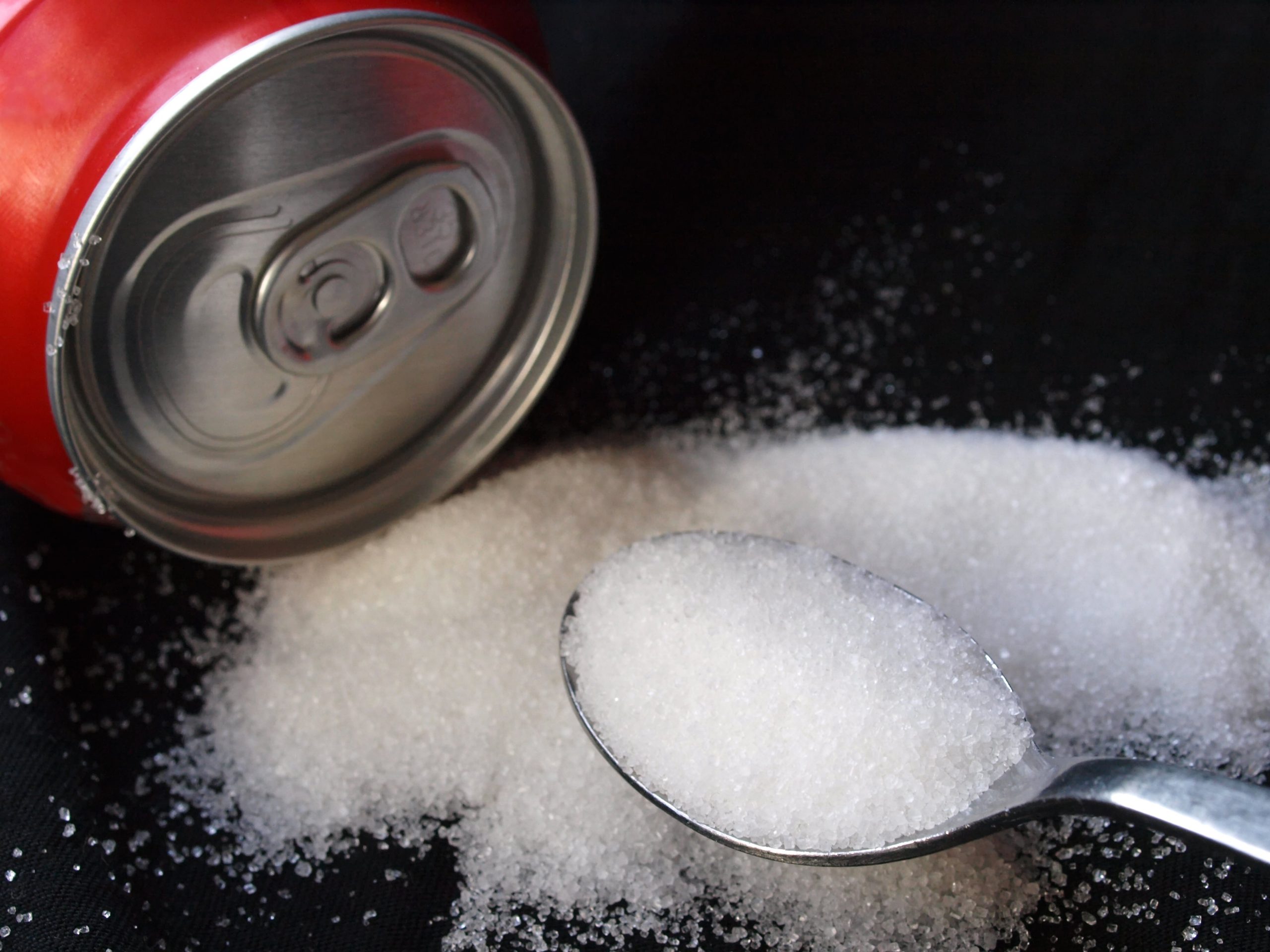Soda is a popularly consumed beverage worldwide. While it may be a convenient and affordable drink, soda contains added sugar that may harm your health, especially if consumed in excess.
Sugar can be sourced from different foods, with some containing high amounts of sugar than others. Soda appears to contain much of it and its just the worst option. These foods may include highly sweetened coffees, fruit juices, and other foods containing liquid sugar. Several health implications have been tied to too much consumption of soda like obesity, type 2 diabetes, and leptin resistance. This article explains how added sugar in soda can harm your health.
1. Sugary Drinks Are Not Satiating and Are Linked to Weight Gain
Many sugary drinks contain sucrose or table sugar as added sugar, which delivers high amounts of fructose. When compared to glucose, fructose does not lower the levels of hunger hormone ghrelin, neither does it increase feelings of fullness. Glucose is formed when sugar in starchy foods is digested into simple sugars. Since liquid sugar do not make you feel full, they only add more calories on top of your daily intake. For this reason, it is easy to gain weight compared to people who don’t consume sugar-sweetened beverages. Studies suggest that too much intake of sugary drinks can increase your risk of obesity by 60%.
2. Most Sugar In Sugary Drinks Are Turned Into Fat by the Liver
High-fructose corn syrup and table sugar contain glucose and fructose as their main molecules. While glucose can be broken down by nearly every cell in your body, fructose can only be broken down by the liver. Sugary drinks deliver high amounts of fructose than any other drink. Consuming too much of these drinks pumps more fructose into the liver, which are mostly converted into fats. Part of the fat can get out of the liver as blood triglycerides while the rest remain in the liver, which can lead to nonalcoholic fatty liver disease with time.
3. Sugary Drinks Can Increase Accumulation of Fat Around the Belly
Several studies have associated too much intake of sugar with weight gain. Fructose, in particular, has been found to increase fat around the belly, as well as vital organs like the heart and liver. Such deposition of fat around the belly results in what is known as visceral fat. Overtime, too much fat in the belly can increase your risk of chronic diseases, such as heart disease and type 2 diabetes.
4. Excess Intake of Sugar May Lead to Insulin Resistance
If insulin resistance is not corrected on time, it may lead to metabolic syndrome. Insulin is a hormone secreted by the pancreas and is responsible for the transportation of glucose from the bloodstream into the cells. Consumption of sugary soda may reduce your cells’ response to insulin action. In other words, they may become resistant. This will trigger your pancreas to secrete more insulin to clear glucose from the bloodstream, which increases insulin levels in the blood. As a result, you develop insulin resistance. Studies indicate that insulin resistance is the main contributing factor to metabolic syndrome, which draws you closer to heart disease and type 2 diabetes. Taking too much sugary soda supplies more fructose, which increases insulin resistance.
5. May Lead To Type 2 Diabetes
Millions of the world population are affected with type 2 diabetes. It is a common endocrine problem characterized by chronically high blood sugar levels due to deficiency or of insulin or insulin resistance. Since soda is a sugary beverage, it pumps in fructose which may lead to type 2 diabetes. Studies claim that drinking just one can of sugary soda per day increases your risk of type 2 diabetes by 1.1%.
6. Sugary Soda May Lead To Leptin Resistance
Hormone leptin is produced by the fat cells in your body. It helps balance the number of calories in your body by the amount you eat and burn. This hormone can rise with obesity or starvation, making it be called fullness or starvation hormone. Animal studies have found that high fructose intake can lead to leptin resistance.
7. Sugary Soda May Be Highly Addictive
Regular intake of sugary soda may stimulate the rewarding center in your brain. Animal studies suggest that it can increase the feelings of pleasure, stimulating your brain to release dopamine. Even taking too much of table sugar may elicit the same effects in some people, as your brain is naturally made to seek out activities that leads to dopamine secretion and pleasure. As a matter of fact, studies suggest that processed junk foods and sugar may have the same effects in your brain as hard drugs.
8. Sugary Soda May Increase Your Risk of Heart Disease
For a long time, excess intake of sugar has been linked to increased risk of heart disease. Studies have consistently shown that sugar can increase blood triglycerides, LDL (bad) cholesterol, and blood sugar, all of which are predisposing factors to heart disease. It is thought that drinking one can of sugary drink per day can increase your risk of developing and even dying from heart attack by 20%.
9. Added Sugar In Soda Can Increase Risk of Cancer
Cancer is a common chronic disease characterized abnormal growth of cells. It is much common in people with type 2 diabetes, heart disease, or are obese. It therefore, come with little surprise that sugary drinks can increase your risk of cancer. Evidence suggest that drinking 2 cans of sugary sodas in a week can increase the risk of pancreatic cancer by 87%. Too much intake of sugary soda in postmenopausal women may increase their risk of endometrial cancer – a type of cancer that affects the inner lining of the uterus.
Conclusion
Sugary soda contains fructose which is only metabolized by the liver. Excess intake of fructose in sugary soda leads to deposition fat in the liver, belly, and in the blood. This may lead to nonalcoholic fatty liver, visceral fat, and type 2 diabetes. It may also increase your risk of heart disease, leptin resistance, and cancer.
- Learn to Enjoy Self-care Routine - September 21, 2023
- Jonathan Aufray’s Story - July 29, 2023
- From Public Housing To Ivy League: The Inspiring Journey of Crystaltharrell.com and its Founder - June 7, 2023









